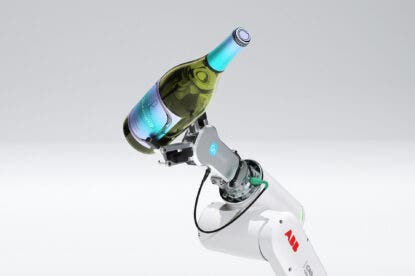Despite doomsday predictions that Millennials will kill the wine industry, interest in wine education is growing. The Wine & Spirit Education Trust (WSET) reported 48% growth in U.S. candidates from 2016 to 2017, and a new generation of entrepreneurs is expanding learning opportunities. They reach consumers in a way that’s accessible and welcoming.
Cha McCoy fell in love with wine and sought an innovative way to make it her livelihood. McCoy, a Certified Sommelier and Level 3 Advanced WSET-trained former civil engineer, hosts The Communion, a series of pop-up dinners.
“I would have immediately invested in a wine bar, but this is [New York City] and the lack of capital and affordability, even in Harlem, was too difficult,” says McCoy.

Instead, she partners with underrepresented chefs and restaurateurs, including women and people of color, around the world to create paired menus. At her dinners, she walks around the table and asks attendees to identify aromas and flavor notes, and explains concepts like body, tannin and acidity.
Once each glass has been tasted through, McCoy will offer background information on the grape and region. It’s a casual, familial environment that provides attendees with knowledge about specific wines that pair well with dishes, and how to taste wines.
“Mostly, [guests] are just really passionate about trying new wines and eager to learn even the basics,” says McCoy. She says that building personal relationships with wine lovers is key to her approach.
“Now that you have the secret to their palate, they only want you to pick their wines,” she says. “I believe strongly that the wine industry is not doing enough to properly educate. The diverse market wants more options, but don’t feel like they are made for them.
“The attendees come repeatedly because they feel comfortable to ask questions and learn about various wines, and now they are empowered to purchase and order with more confidence.”

A desire to include a wider audience has also motivated Ashtin Berry. A former sommelier at Air’s Champagne Parlor and beverage director of Tokyo Record Bar, Berry co-founded a collective called Radical Xchange with Kisira Hill, also a former restaurant industry veteran. The group’s mission is to host events and provide a platform for industry professionals that helps make hospitality more equitable. Its inaugural Resistance Served conference last February in New Orleans focused on the history and contributions of people of color in hospitality, and how that knowledge can help better serve customers.
Berry had what could be considered a dream job in wine, as she ran beverage programs at trendy New York City bars helmed by Wine Enthusiast 40 Under 40 honoree Ariel Arce. She’s grateful for the experience, but Berry knew her calling was to carve a more rewarding niche.
“I love wine, but I hate the inherent classism of the wine world,” says Berry.
Sometimes reaching a new audience can be as simple as taking a new approach in a traditional setting. That’s the strategy of Bay Grape in Oakland, California.
Founded by 2017 Wine Enthusiast 40 Under 40 tastemakers Stevie Stacionis and Josiah Baldivino, the bottle shop bills itself as a “community gathering place.” Customers can hang out and chat with the staff, most of whom have Certified Sommelier or more advanced certifications through the Court of Master Sommeliers.
Bay Grape also hosts drop-in tastings or classes daily that range from how to blind-taste wine to how to drink seasonally and regional explorations. Priced between $20 and $30, the events provide wine and access to a sommelier at a cost far less than most restaurant meals.

Likewise, in Burlington, Vermont, Dedalus Wines offers a communal feel to tastings and classes that pair wine with music or food, some of which are free. They often differ from traditional retail tastings by not focusing on a specific producer, and they’re structured to merge wine with other interests. A casual environment and affordable pricing encourage patrons to come back to expand their wine knowledge.
Despite all these efforts for innovative education, it’s hard to argue with numbers that show younger people aren’t buying wine. What can people in the industry do?
“Large brands can consult with representatives from underrepresented groups to discuss how to be engaging more authentically to a new audience,” says McCoy. “Let diversity be a real focus on all levels…for leadership roles and various positions such as winemaker, sommelier and brand ambassador. Customers want to see themselves drinking your wine.”
Last Updated: May 5, 2023















